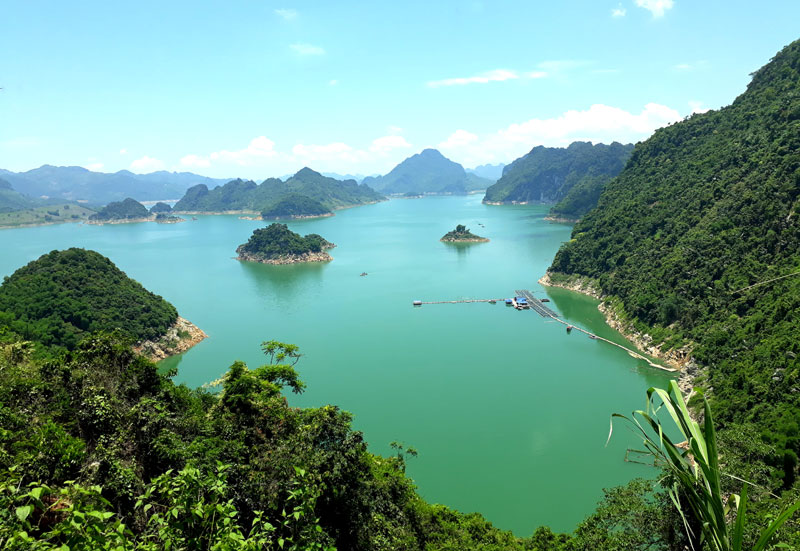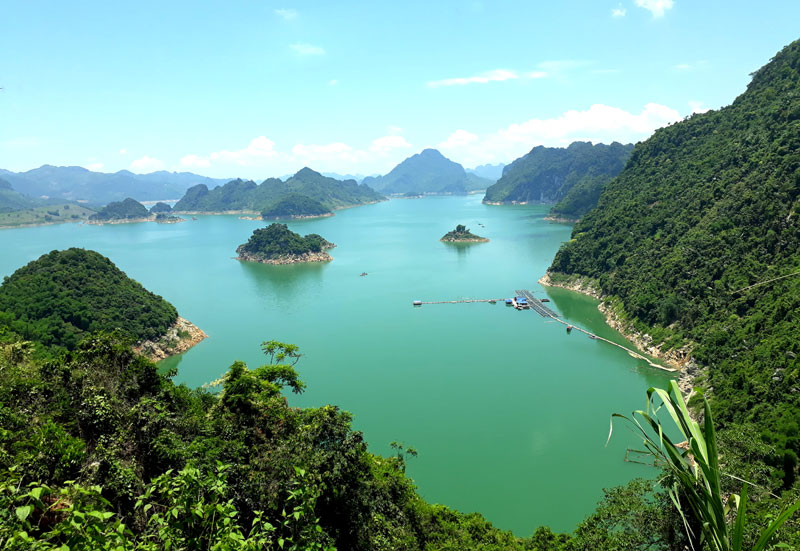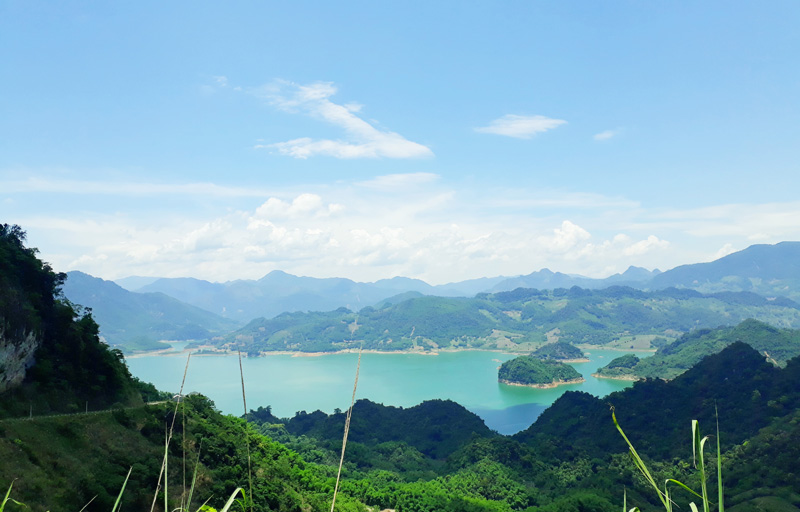



This lake has been described as "Ha Long Bay
on land” because of the ultramarine of water and mountains encircling as
floating islands.
Ba Khan is not far, and this land with many
mysteries is more than 50 km away from Hoa Binh city. Along Highway No.6 to Phu
Cuong commune (in Tan Lac district), it turns right on provincial road No.450
and keeps going ahead about 10 km. This is the center of Ba Khan commune. Going
to Ba Khan in any seasons of the year, this land also fascinates people so
much. In the winter, Ba Khan seems to be in a haze with flashes of rooftops in
the mist. The remaining seasons are ideal conditions to view the natural
scenery here.
Before embanking Da River to construct Hoa
Binh Hydropower Plant, Ba Khan is a valley surrounded by four mountains. When
the ferocious Da River was embanked, it created a large reservoir area and Ba
Khan was romantically beautiful as a charming painting. At the top of the
highest slope, Khan Ha hamlet is the best location to view the natural scenery
of Ba Khan. Two years ago, on the journey to explore Go Lao waterfall of Phuc
San commune, my group of friends was crouched at the top of this slope.
At that time, this place was pristine,
without any sale services or resting destinations. However today, with the
large number of visitors travelling and recognizing the day of full customers,
the family of Mr. Dinh Cong Chien at Khan Ha hamlet has built a spacious house
with many services of food and beverage.

A view of the lake from the high slopes of
Khan Ha
According to Mr. Dinh Cong Linh, the head of
Khan Ha hamlet, he said: "Two days of the weekend are the time when Ba Khan has
many groups of visitors. Not only domestic tourists, but also foreigners know
Ba Khan. Beside the vast reservoir area with blue water and mountains rising as
floating islands, Ba Khan is hiding many things to keep tourists’ interest.
These are ancient stilt houses of the Muong people with the traditional
cultures that still exist today. Moreover, this is a protected forest of Ba
Khan with diverse ecosystems and many visitors have travelled to visit. It is
the factors that Ba Khan is one of the five communes of Mai Chau taken in the
overall planning of the National Tourist Park of Hoa Binh Lake.
Local people are looking forward to having
the higher-level agencies’ interest, supports, training skills classes in
tourism development. Beside beautiful scenery, Ba Khan also has many
specialties and traditional culture of the Muong people which can be restored,
developed and meet the needs of visitors”.